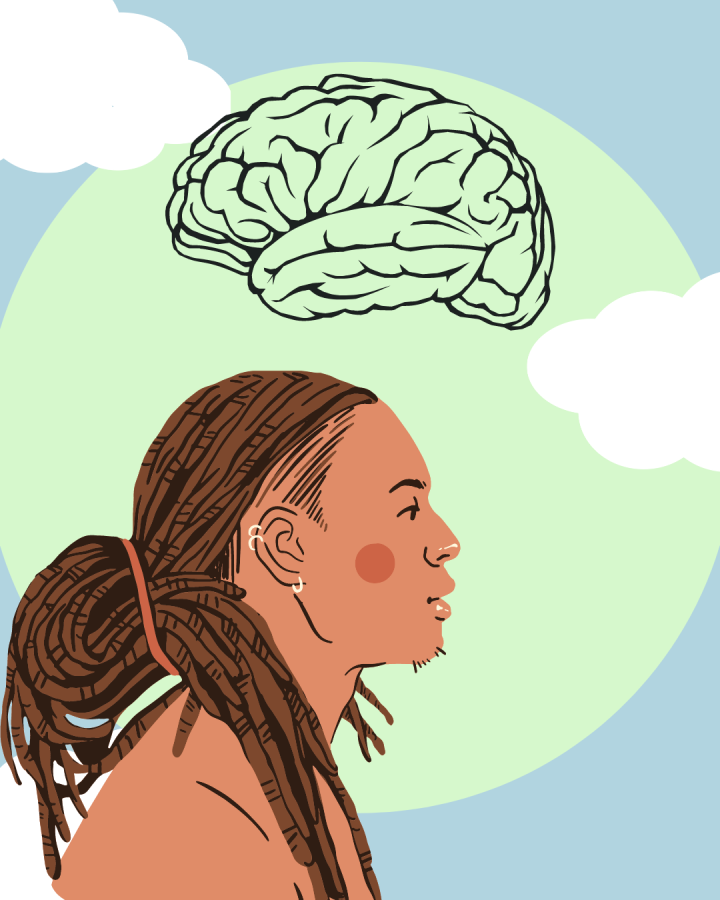As the outcries of racial, social and economical injustice flood the nation, so do the words of encouragement and support regarding the ever-so-important aspect of mental health.
During the course of your lifetime, you may not be diagnosed with a specific mental illness, but everyone will struggle with their mental well-being at least once.
A recent study published in the International Journal of Health Services gives us a peek into how the Black population in America is affected by mental health related issues:
“African American adults are 20% more likely to experience mental health issues than the rest of the population,” according to the study. In turn, “25% of African Americans seek treatment for a mental health issue, compared to 40% of white individuals.”
These aren’t empty statistics — they truly mean something.
As a Black man myself, I understand many things that can affect our mental health. Some factors include negative stigmas and stereotypes (and perpetuating them), living in an area and with people that we don’t associate with culturally, the fear of law enforcement, the desire to hide issues and portray a positive and masculine image, and the simple fact that growing up I was never taught the importance of mental health.
Black men’s ongoing exposure to discrimination and institutional racism has created what Dr. Brian Smedley, the chief of psychology in the public interest at the American Psychological Association, referred to in an interview with NBC News as a “mental health tsunami.”
“The combination of physical distancing, economic anxiety, and — for people of color — the very real stress from racism since the pandemic means that we will have a lot of unmet mental health needs unless we can dramatically shore up the mental health infrastructure,” Smedley said.
Historical adversity, which is race-based exclusion from health, educational, social and economic resources, has resulted in the lack of access to healthcare and education for some Black communities. Combining this with the well-documented racism and bias within the healthcare system, it’s easy to see why so few African Americans seek help with mental health.
Aside from racial, social and economical issues, there’s another lingering issue that keeps Black men, specifically, from seeking help for their issues: the notion that seeking help for mental health goes directly against the traditional masculine norms of Black men.
In other words, if I were to share my feelings and emotions, I would be seen as vulnerable and less of a man. I know this isn’t true but when you grow up with these norms, it can make you reluctant to seek help and it teaches you to suppress your emotions.
The social expectations that come with Black masculinity have created a toxic environment for Black men resulting in psychological and emotional health effects with long-term struggles such as feeling unheard or unaccepted, failure to express emotions and clinical mental illnesses.
Demography also plays a role mentally.
According to the most recent census data available, 55% of all Black and African American people lived in the South, 18% lived in the Midwest, 17% in the Northeast, and 10% in the West.
This makes it even harder for African Americans to become accustomed in areas such as California where they aren’t in the top three of the state’s racial population.
I’ve spent my whole life adjusting to the customs of each community I resided in, not knowing how important it was to embrace my roots and be myself.
Pile all these stressors on with the craziness of the pandemic and the everyday life of the typical college student, and you’ve got yourself a messy jumbo bacon mental health cheeseburger.
There’s a simple lesson I’m trying to get across here: Black men, despite what you may have been told, our mental health is important.
It’s evident that the topic of Black men tending to their mental health has been brushed aside for generations, but now is the time to change that stigma.
You are not alone.
Even the great Dr. Martin Luther King Jr. reportedly suffered from severe depression during periods of his life and refused treatment, even when urged to seek care by his staff.
Find help, talk to a friend, take a break; whatever it is that makes you feel more like yourself. Do it, because at the end of the day the most important thing is your happiness and peace of mind.
Morgan Prickett is a junior studying journalism. Follow him on Twitter @morganprickett1.










